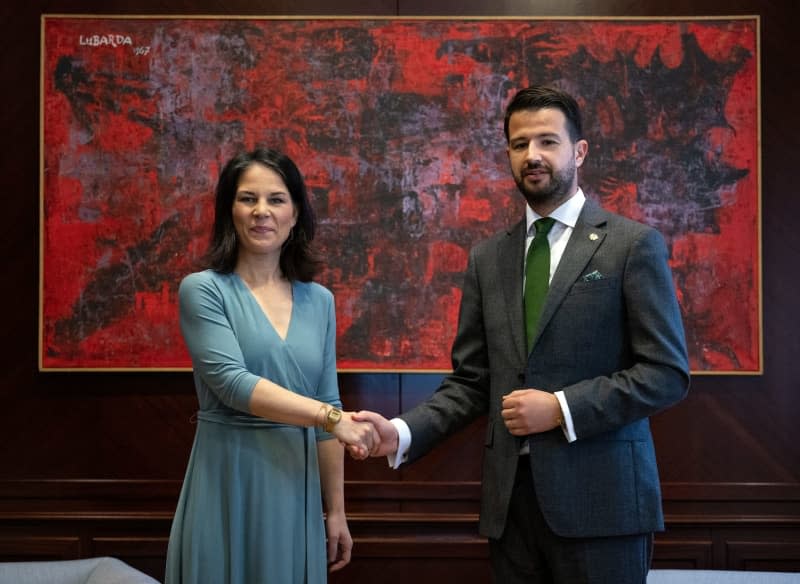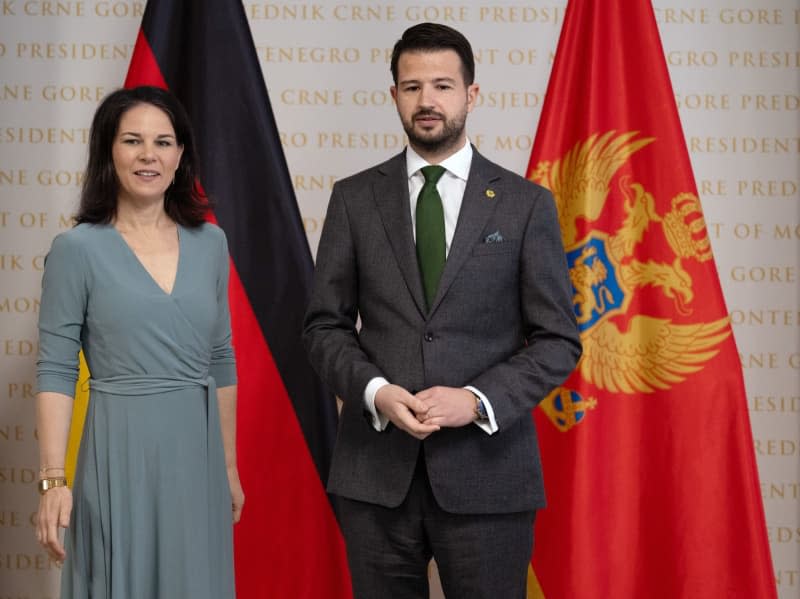Baerbock pushes for EU enlargement to include Western Balkans

- Oops!Something went wrong.Please try again later.
German Foreign Minister Annalena Baerbock wants to step up the pace of EU enlargement to include Western Balkan countries such as Montenegro and Bosnia-Herzegovina in the face of Russian and Chinese attempts to exert influence in the region.
"The faster we become stronger as a European Union in these geopolitical times, the better," Germany's top diplomat said on Monday at a meeting with her Montenegrin colleague Filip Ivanovic in the capital Podgorica.
At the same time, she emphasised: "Enlargement is not an end in itself, but serves to strengthen our common Europe."
The Russian war against Ukraine makes EU enlargement in the Western Balkans a "geopolitical necessity," she added. As in Ukraine, "the European project is also a guarantor of freedom, democracy, the rule of law and prosperity here in the Western Balkans."
Ivanovic called Baerbock's visit, at a time of major reforms in his country, a confirmation that the European Union is interested in the Western Balkans.
"There is no alternative to integration if we want a stable region. It is the path to stability and a simpler settlement of disputes," he added.
Montenegro and Bosnia-Herzegovina, along with Albania, Serbia, North Macedonia and Kosovo, form the Western Balkans.
The European Union is urging the countries to pursue the reforms needed for integration with the 27-member political and economic bloc.
Brussels views Montenegro as being furthest along in the accession process, but the pace is slow.
Montenegro has had a new government since October 2023 under the leadership of Prime Minister Milojko Spajic, who is committed to reforms. However, Spajic also governs with the support of pro-Serbian and pro-Russian parties.
Ivanovic conceded that there are concerns about Russia's negative influence. However, he also emphasized: "In Montenegro, 80% of the citizens are European-oriented, which says enough about how and in what way Montenegro is oriented."
In addition to Spajic, Baerbock also met the Montenegrin President Jakov Milatovic.
Montenegro's negotiations were launched in 2012. Even under the most ambitious scenarios the EU is not expected to admit new members before the end of the decade at the earliest.
In December 2022, Bosnia-Herzegovina was granted the status of EU candidate country, but negotiations have yet to begin.
Later on Monday in Sarajevo, Baerbock was set to meet with members of Bosnia's tripartite presidency as well as Christian Schmidt, the international community's high representative overseeing peace in Bosnia.


